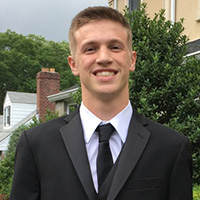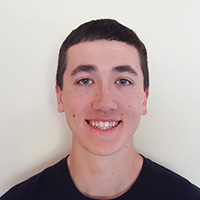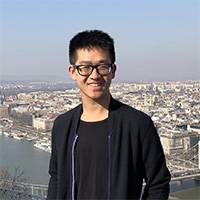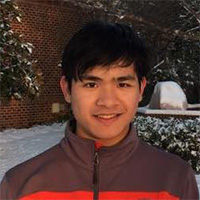By Greta Shum
Seven undergraduates have been awarded research funds from the Peter B. Lewis Fund for Student Innovation in Energy and the Environment and the Dede T. Bartlett P03 Fund for Student Research in Energy and the Environment.
This competitive funding supports undergraduate research on energy- and environment-related projects, particularly field work and laboratory research. For the first time, the Andlinger Center is also offering internship opportunities with off-campus institutions to conduct research in, and analyze policy for, energy and the environment, including: the American Council for an Energy-Efficient Economy (ACEEE) and the Environmental Defense Fund (EDF).
These additional opportunities at ACEEE and EDF provide a chance for undergraduates to engage in real-world solutions and experience working at the intersection between clean energy technologies and society.
Six of the recipients will spend eight weeks this summer working under the guidance of a faculty adviser. Two of the recipients will work off-campus at ACEEE and EDF. The students’ projects are described below.
 Sam Berman ’21, advised by Emily Carter
Sam Berman ’21, advised by Emily Carter
Title: Materials Design for High Efficiency Beyond-Si Solar Cells
Abstract: The main focus of this project will be to improve the efficiency of copper zinc tin sulfide (CZTS) solar cells. There is growing interest in developing CZTS compounds because they overcome two main problems with other compounds used in thin-film solar cells — limited availability and toxicity. During the internship, I will work directly with Dr. Sai Gopalakrishnan, a Mechanical and Aerospace Engineering postdoc in the Carter group. His project is focused on developing cheap and non-toxic techniques to improve the efficiency of CZTS solar cells. Part of my responsibilities will include assisting in the density functional theory calculations that will be used to identify possible elements to dope into CZTS to improve its efficiency.
 Heidi Kim ’21, advised by Barry Rand & Minjie Chen
Heidi Kim ’21, advised by Barry Rand & Minjie Chen
Title: Thin Film Solar Modules with Integrated Power Management
Abstract: The main purpose of this internship is to enhance the effectiveness and durability of thin-film photovoltaic (PV) power modules. Traditionally, all PV power modules are configured as a string of solar cells, a maximum power point tracker (MPPT), and a central grid interface converter. As the many solar cells are connected in series, the overall current is limited by the current made available by the lowest-performing cell. As such, external issues like partial shading and dirt accumulation impose severe limitations on the reliability of each device as a whole. The team led by Dr. Rand and Dr. Chen proposes to develop a submodule MPPT grid-interface architecture to enhance the grid services and improve the overall system performance, especially under partial shading conditions. The key idea is that these objectives can be reached through the combination of two measures: a novel solar cell fabrication process that integrates passive components (i.e. inductors and capacitors) with solar cells, and a new multi-level grid interface strategy that can maximize the efficiency of this unique PV system architecture. Overall, this research should improve system modularity and reliability while maintaining system efficiency with marginal cost increments.
 Connor Matthews ’20, advised by Howard Stone
Connor Matthews ’20, advised by Howard Stone
Title: Electrochemical Capacitors with Flowable Electrodes
Abstract: The primary purpose of this internship is to experiment with new capacitor storage and charging techniques that have important real-world applications. Changing valence of ions in electrolytes, and the ability for electrolytic solution to be replaced within a capacitor, are just two examples of ideas pertaining to the development of rapid charging and discharging capacitors. The long-term goal expands to the world of transportation and vehicles, where electric cars would have the ability to refill their capacitors in a similar amount of time to that of a refueling gasoline car.
 Natalia Miller ’21 — ACEEE (Washington D.C.)
Natalia Miller ’21 — ACEEE (Washington D.C.)
Title: After the Audit: Improving Residential Energy Efficiency Assessment Reports
Abstract: Home energy assessments are a key component of energy efficiency programs across the USA, but the results of these assessments can sometimes be difficult to understand or unpersuasive for homeowners. The assessments involve energy efficiency experts visiting a home, discussing the homeowners’ concerns and conducting diagnostic tests. Reports are then generated and delivered to homeowners explaining what should be upgraded and how much each upgrade might cost. Effective reports have the potential to increase investment in home upgrades and maximize the effectiveness of home energy assessment programs. Appropriate guidelines for creating reports should be developed, and the first step in doing so is to examine the reports that are currently being used. This internship involves systematically evaluating a sample of home energy assessment reports by applying theories of psychology and design.
 Saira Reyes ’21, advised by José Avalos
Saira Reyes ’21, advised by José Avalos
Title: Investigating Metabolic Pathways Using Yeast Cells
Abstract: The primary purpose of this internship is to use yeast as a host for the control of different metabolic pathways. The goal is to use synthetic biology in order to control the production of biofuels and other chemicals of interest. Specifically, this internship focuses on technology such as biosensors that, when working alongside metabolic pathways, will help regulate functions in the cell in order to optimize metabolic pathways for a particular purpose. This will optimize the production of the substance of interest, which can then be used for larger problems related to the environment.
 Kim Sha ’19 – EDF (Chicago, IL)
Kim Sha ’19 – EDF (Chicago, IL)
Title: Clean Energy Intern
Abstract: Under supervision of the Midwest Director for Clean Energy, the Intern will work closely with economists, lawyers, media and program staff across the organization to advance EDF Clean Energy goals in Illinois and the Midwest. Overall, the Intern will focus on legislative and regulatory barriers to clean energy, with a focus on analyzing newly available energy-usage data in order to develop more effective policies and rate structures. This engagement will help EDF advance two policy issues. First, the intern will help evaluate the monthly savings or bill increases Illinois customers would see from a suite of dynamic energy pricing regimes, including theoretical Time-of-Use (TOU) rates and ComEd’s current Residential Real-Time Pricing (RRTP) program. Second, the intern will help evaluate alternative EV rate designs in order to expand clean-energy electrification and explore the potential for vehicle-to-grid grid services.
 Teerit Vongkovit ’19, advised by Alejandro Rodriguez
Teerit Vongkovit ’19, advised by Alejandro Rodriguez
Title: Modeling van der Waals and Casimir interactions in low-dimensional materials at the nanoscale
The purpose of this internship is to develop theoretical methods that capture the impact of phonons on Casimir interactions in mesoscopic, low-dimensional systems, including macro-molecules and two-dimensional materials in the vicinity of structured macroscopic surfaces. Additionally, we will investigate the role of finite sizes and geometries and the extent to which the atomistic delocalization of charge in these systems and its dependence on many-body scattering impact van der Waals interactions at nanometric scales.
Six students were awarded funding for research in the summer of 2017.